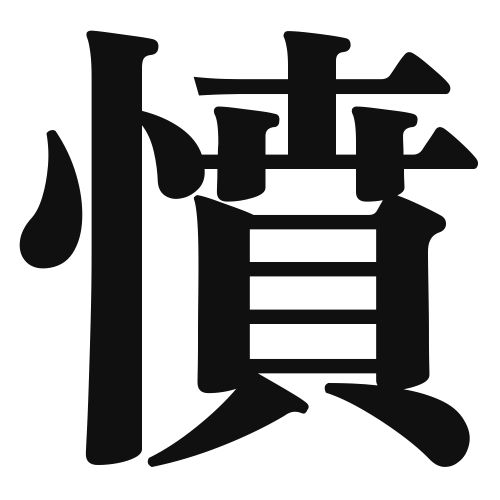1. Overview of Meaning
The kanji “憤” (pronounced “fun”) means “anger” or “indignation.” It expresses a strong feeling of displeasure or resentment towards something perceived as unjust or unfair.
2. Formation and Radical
Formation of the Kanji: The kanji “憤” is a compound character (会意文字) that combines the elements of “心” (meaning “heart” or “mind”) and “忿” (which also relates to anger). This combination emphasizes the emotional aspect of anger.
Radical: The radical of “憤” is “心” (or “忄” when written in its variant form), which is commonly associated with emotions and feelings.
3. Examples of Usage
Common Words and Phrases:
- 憤慨 (ふんがい, fungai) – indignation
- 憤怒 (ふんど, fundo) – rage
Example Sentences in Daily Conversation:
- 彼は不公平な扱いに憤りを感じた。
(He felt anger at the unfair treatment.) - そのニュースに憤慨した。
(I was indignant about that news.)
4. Synonyms and Antonyms
Similar Kanji:
- 怒 (ど, do) – anger; this kanji is more general and can refer to any form of anger, while “憤” specifically implies a deeper sense of indignation.
Antonyms:
- 喜 (き, ki) – joy; this kanji represents happiness and is the opposite of anger.
5. Cultural and Historical Background
Relation to Japanese Culture: The concept of “憤” is significant in Japanese culture, where expressing emotions, especially anger, can be seen as a sign of passion and commitment to justice.
Proverbs and Idioms:
- 憤りを感じる (いきどおりをかんじる, ikidoori o kanjiru) – to feel anger; often used to describe a reaction to injustice.
